Mercedes-Benz has opened the eCampus at its headquarters in Stuttgart-Untertürkheim, Germany. The manufacturer will pool battery research to develop innovative high-performance cells and new manufacturing processes. By doing so, Mercedes wants to reduce battery costs by more than 30%.
Ola Källenius, the Mercedes CEO himself, kicked things off at the opening of the eCampus, evoking the pioneering spirit of the car manufacturer’s founding fathers. The brand-new facility for battery production research stands where a building for camshafts and crankshafts was built in 1907.
Commenting on the recent zigzag course about the phase-out of the combustion engine, Källenius said: “Mercedes-Benz is committed to zero emissions. I want to emphasize that. We are creating the conditions to become fully electric.”
The company wants to “press ahead with investments as before,” and “nothing has changed” in this respect. However, Mercedes’ CEO also cautioned that if the customer hesitates until the 2030s, we will continue to build them ‘the perfect Mercedes’. “But the target station is zero emissions,” Källenius emphasized.
No hesitation
Robert Habeck, Germany’s Vice Chancellor and Economics Minister (Green party), was present to pick up the baton. He said the “sometimes misleading political debate” surrounding the transformation must stop.
“If we hesitate now and lose time, we will also lose the competition in the end,” he warned. Other economic areas were not hesitating. “The competition for the best drive technologies is in full swing,” said Habeck. In essence, it all comes down to competitiveness. He wants to continue stimulating demand with special depreciation allowances for electric cars.
Following the BMW example?
The ‘Industrial Cell Lab’ in Untertürkheim represents a three-digit million investment sum. The main focus will be on the industrialization of cells; Mercedes wants to cover the entire product and process chain of cell development and production in the laboratory, thus enabling “the development of expertise for an economical manufacturing process.”
It sounds a little like the strategy of the competition from Munich, where the ‘Battery Cell Competence Center’ has been in operation for several years and the ‘Battery Production Competence Center‘ in Parsdorf near Munich has been producing its own cell samples since last October.
“The battery production process has a major influence on performance,” Mercedes Board Member for Development Markus Schäfer emphasized at the opening. “Our goal is to reduce costs by more than 30% and increase performance.”
For Schäfer, it is clear that battery production is no longer possible without extensive expertise in the manufacturing process. He repeatedly talked about the “perfect cell design with Mercedes-Benz DNA.”
“We aim to develop the perfect cell design with ‘Mercedes-Benz DNA’ here in Untertürkheim and to incorporate it into our suppliers’ future battery cell generations,” he concluded.
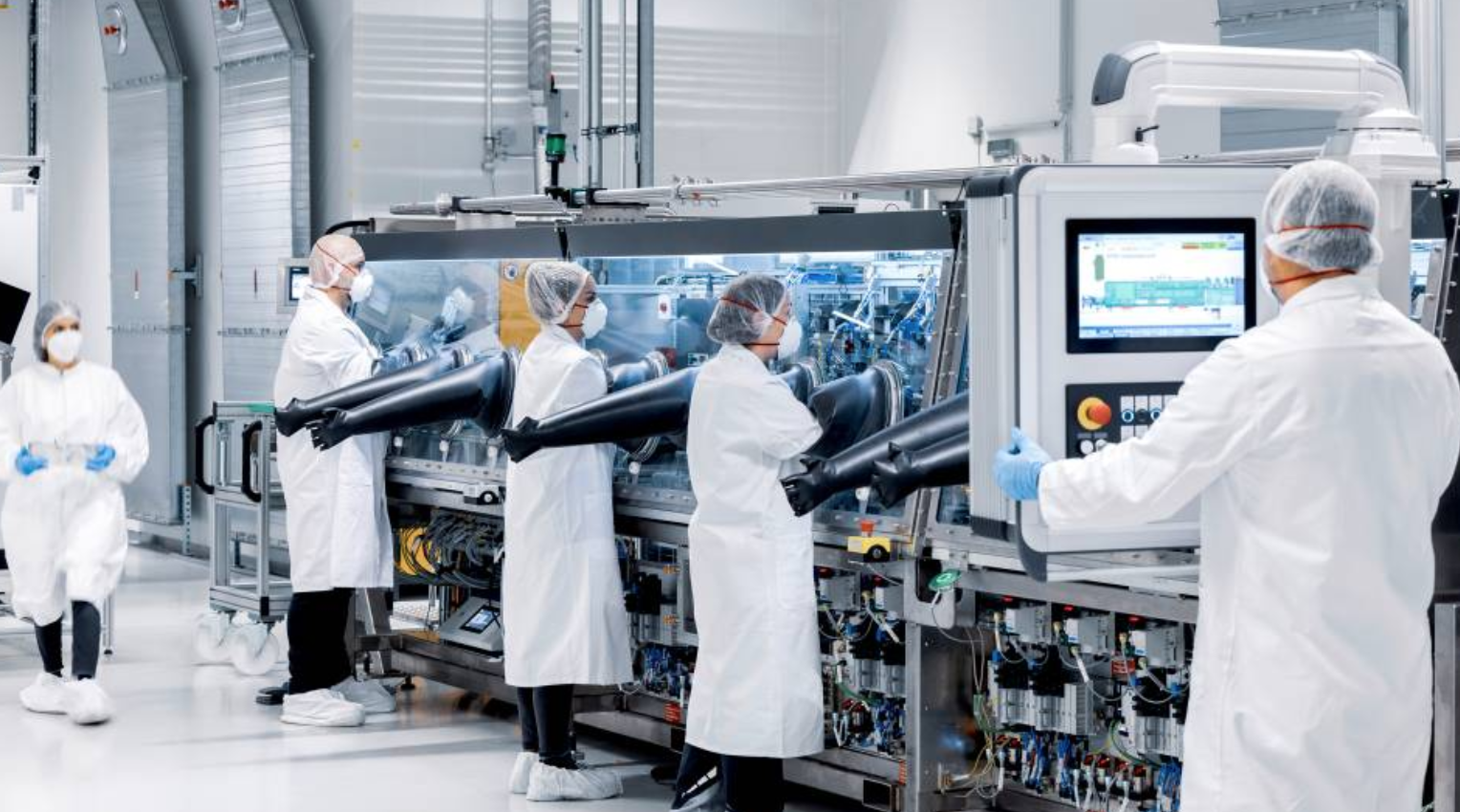
In the ‘Industrial Cell Lab,’ Mercedes wants to manufacture and test battery cells on an industrial scale in “state-of-the-art production facilities,” with a capacity of “several tens of thousands of cells per year.” It will cover automated and manual work steps from electrode production to cell assembly, including electrolyte filling and forming, through to the “refinement of all battery cell manufacturing steps.”
Different cell chemistries
Mercedes wants nothing less than “unique” cells that can stand out from the competition thanks to their high energy density, fast charging, and performance. However, there won’t be just one Mercedes cell, but rather “different forms of cell chemistries,” according to the company.
Mercedes is working on “lithium-ion cells with high-energy anodes based on silicon composites and innovative cobalt-free cathode chemistries as well as on solid-state battery technology, among other things.”
Several specific development goals are also mentioned: The high-silicon anodes and solid electrolytes will increase the energy density to 900 Wh/l.
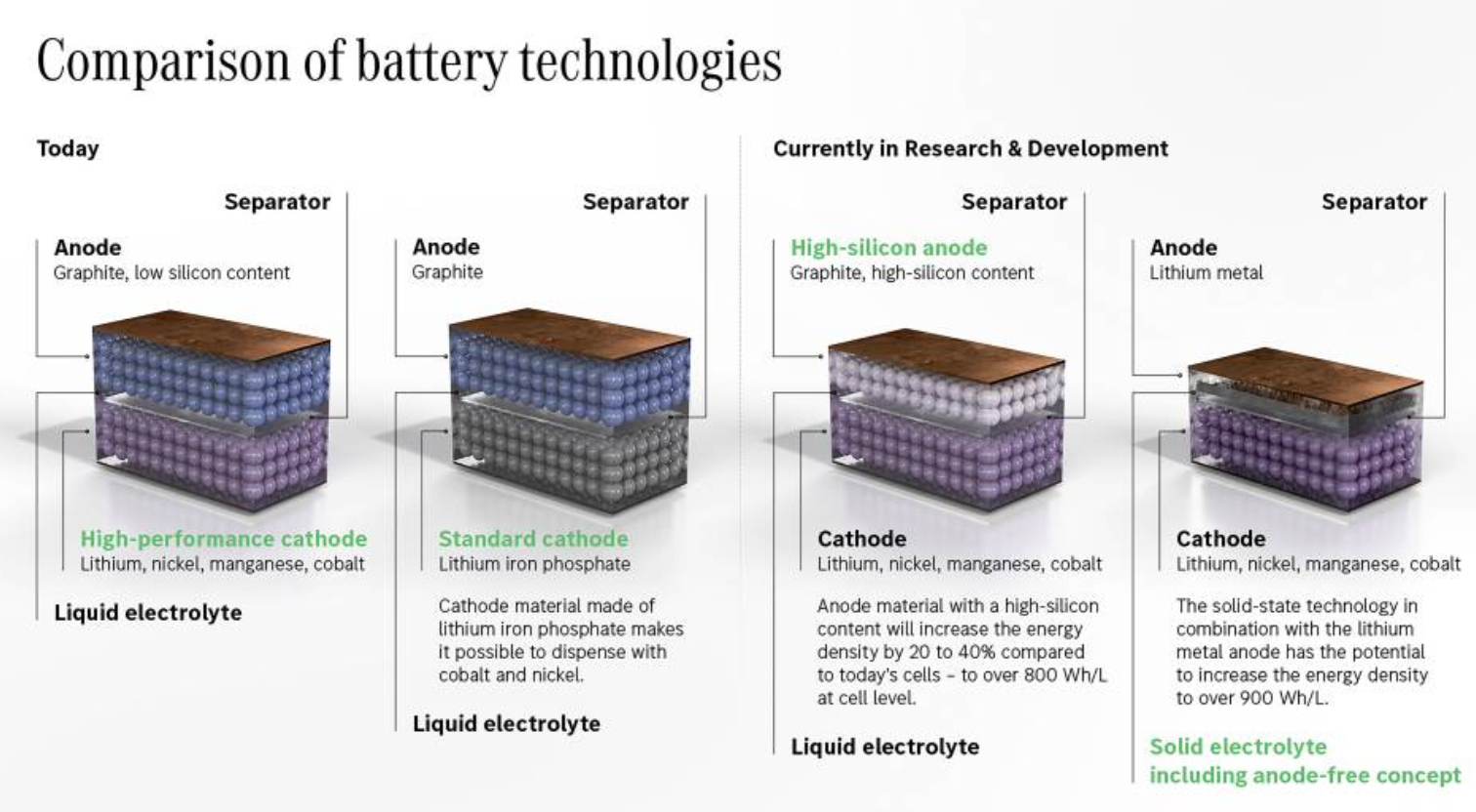
Manufacturing control
Mercedes also emphasizes that the cell manufacturing process has a “major influence” on the quality of the battery. Therefore, the company is “committed to controlling not only the chemical composition of the cells but also the industrial manufacturing process.”
A realization that took a long time to mature in Stuttgart. The battery is not just a supplier part after all, but a competitive component in which Mercedes wants to influence production and development – and now has to build up as quickly as possible expertise in the race with the competition and, above all, the innovative cell manufacturers.
The ‘Industrial Cell Lab,’ which has been put into operation, complements Mercedes’ two existing battery laboratories. Innovative cell chemistries and advanced cell designs are developed and evaluated in the ‘Chemistry Lab’, where the work on the cathodes, anodes and (solid) electrolytes occurs.
The new developments have been produced and tested in automotive pouch cell format in the ‘Flexible Cell Lab,’ and are currently on a prototype scale. If a new development from the ‘Chemistry Lab’ passes the prototype tests, it is transferred to the ‘Industrial Cell Lab’ to refine the production processes and prepare for volume production at a battery manufacturer.
The capacities for this will be further expanded: In addition to the 10,000 square meter ‘Industrial Cell Lab,’ a new building with a further 20,000 square meters of space will be completed in a second stage by the end of the year.
Among other things, a “battery factory for product and process development” will be built there. These facilities will ensure the maturity level for industrial mass production and will not represent Mercedes-Benz’s entry into its own battery volume production.
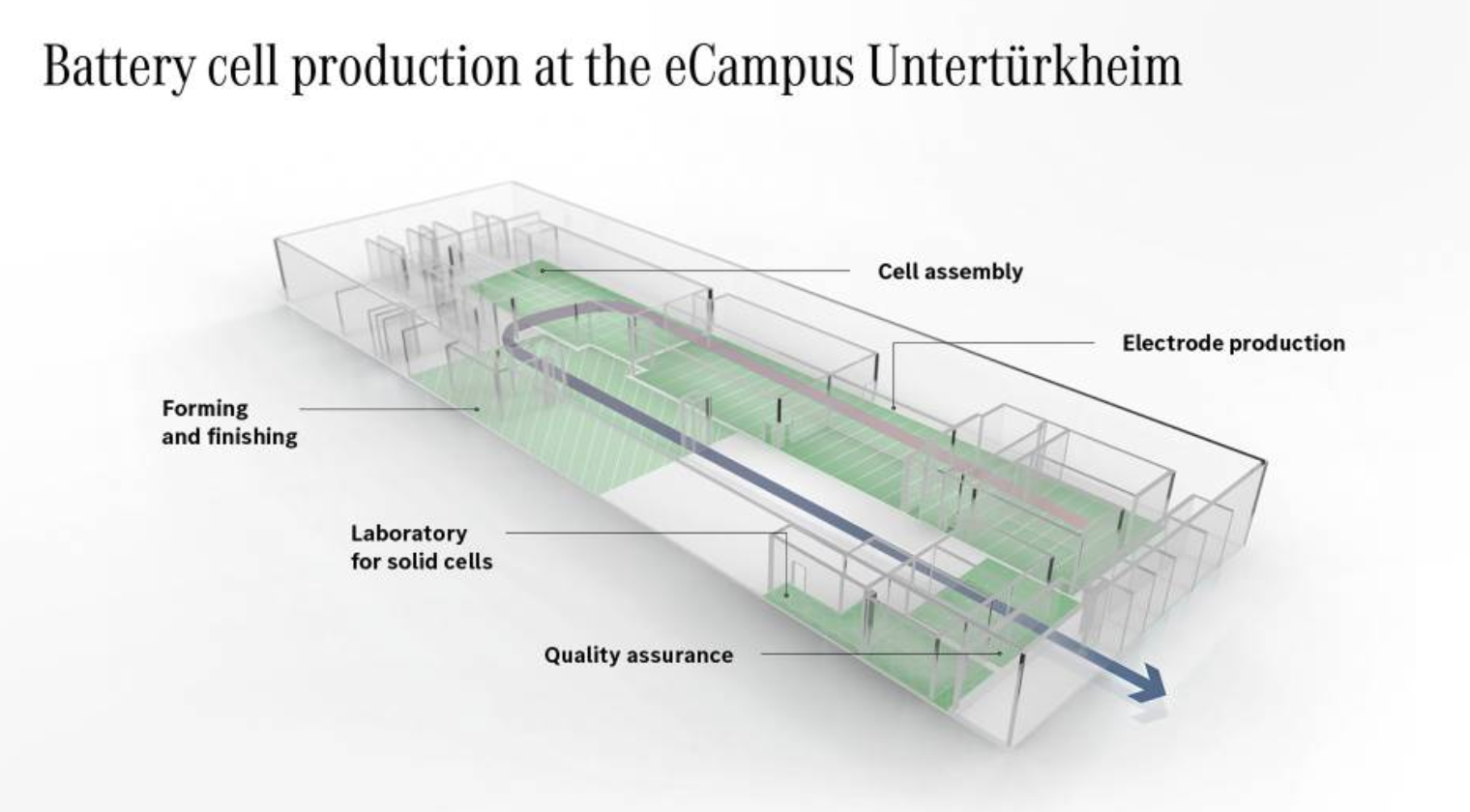
Yes, we can
What is unanimously promoted at the opening of the eCampus is a “can-do mentality.” At least, that’s how Ola Källenius puts it. Federal Economics Minister Habeck takes a similar view: “It is not the time to always look at the situation with slumped shoulders, but to get to work,” he stressed.
One issue has already been cleared up: “The charging station network is dense and getting denser. Nobody has to worry about that anymore,” concluded Habeck. It could be interpreted as an indirect demand to the industry to get more electric cars on the road.
Baden-Württemberg’s Minister President Winfried Kretschmann has no doubts about the future of batteries: “Despite all the rumblings, we still hear electric mobility will come and prevail. Have courage and put it into practice,” he called out to the guests at the official opening of the eCampus.
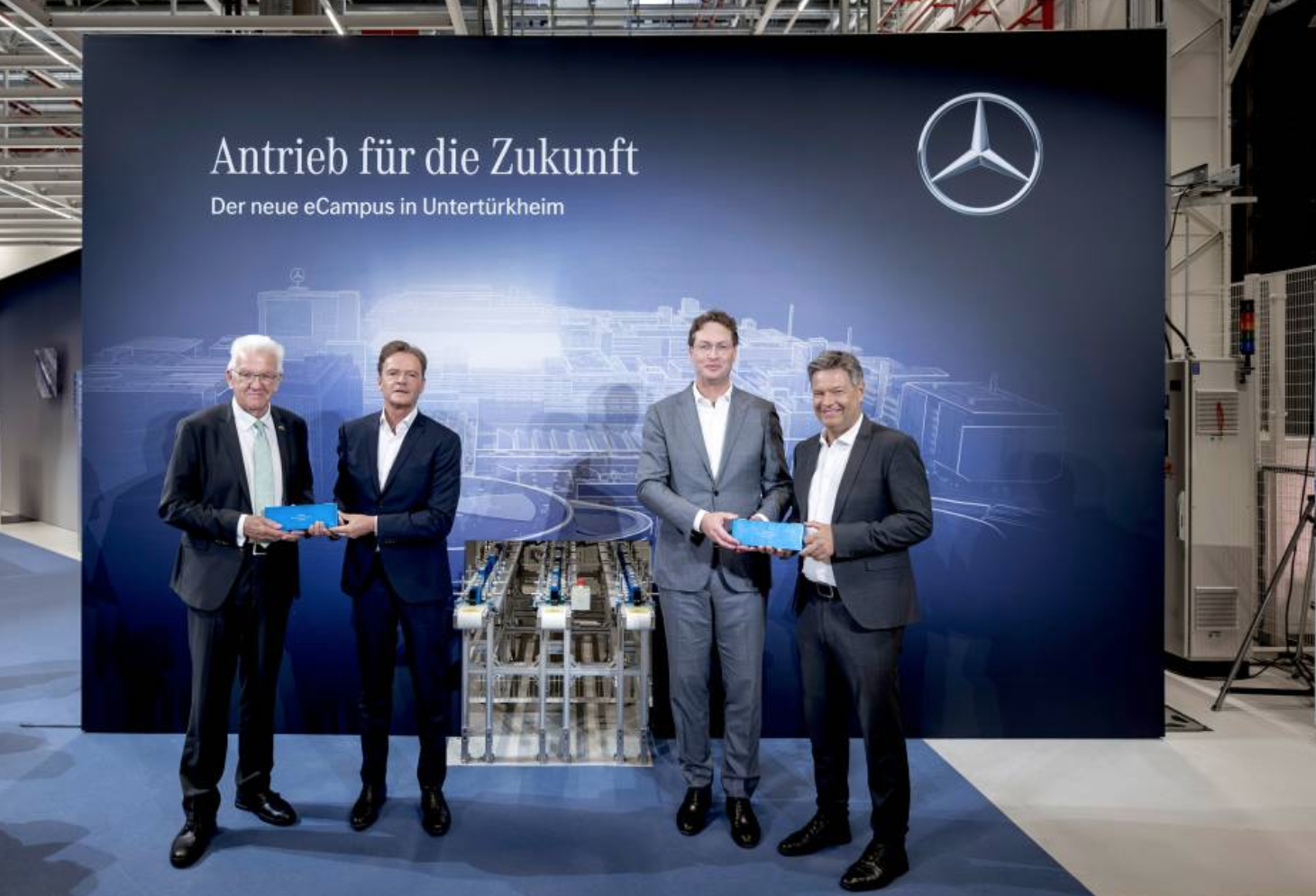
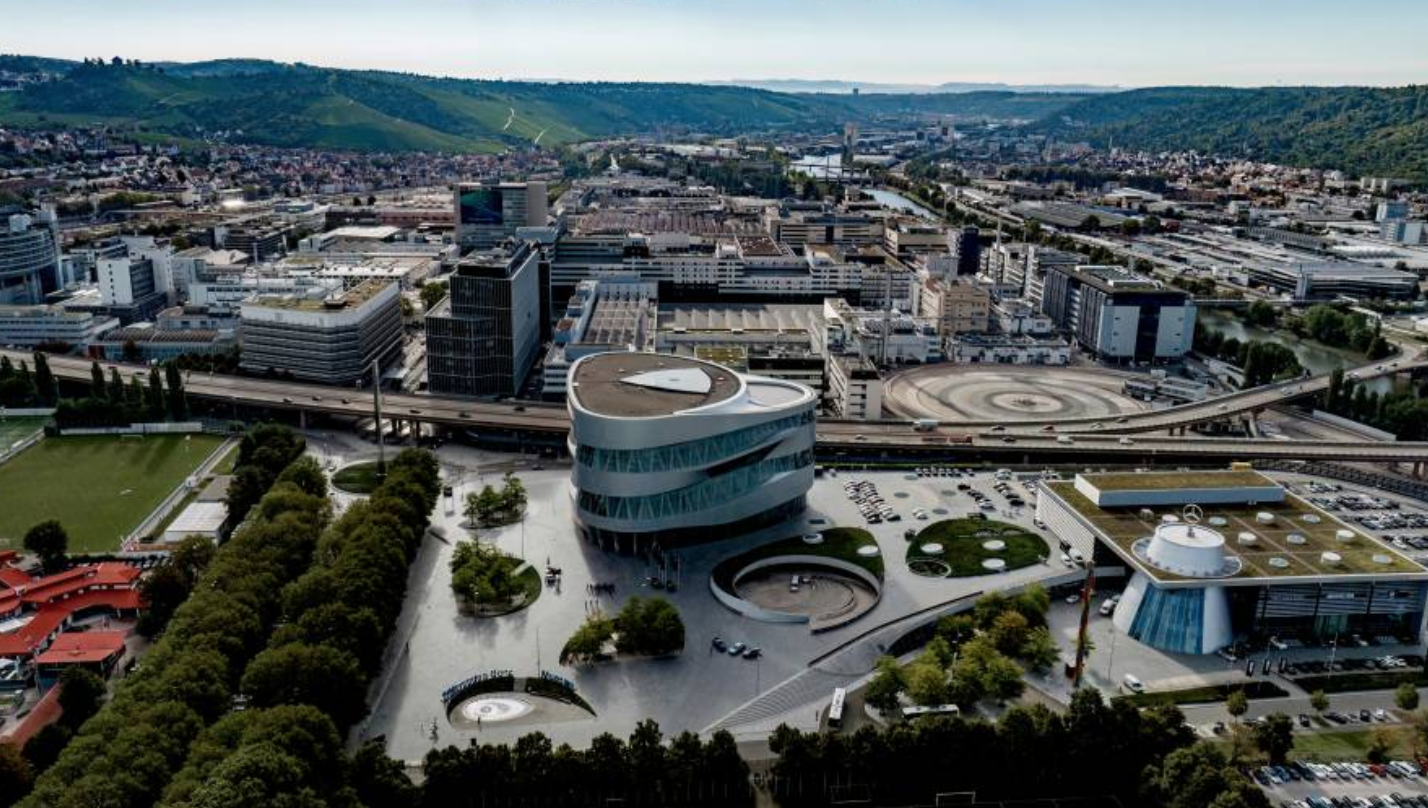


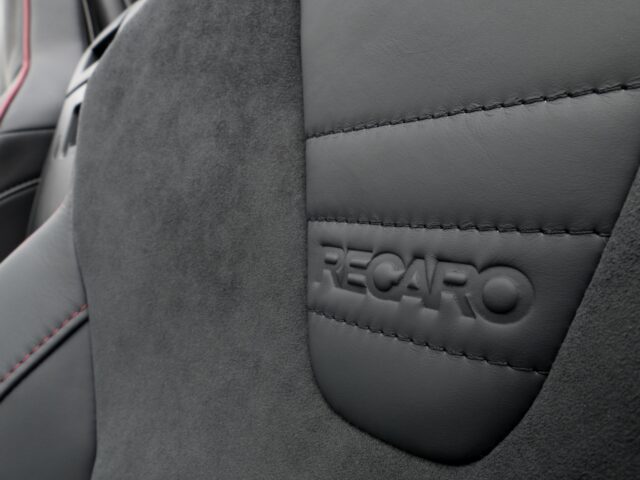
Comments
Ready to join the conversation?
You must be an active subscriber to leave a comment.
Subscribe Today